Rural Interprofessional Health Professions Summer Preceptorship (Internship)
Frequently Asked Questions
Will the preceptorship be available for 2022?
Yes! Arrangements will be made to provide the preceptorship in 2022. Please note that programs may be subject to change to ensure the safety of participants and those providing the educational experience. This may include remote virtual learning.
Notifications of change to the structure of the program will be announced to students/participants as these decisions are made. Student expectations remain unchanged unless otherwise specified.
Please contact Beth Squires at esquires@uic.edu if you have questions.
When does the summer preceptorship take place?
Gibson City: The summer preceptorship experience at Gibson Area Hospital & Health Services (GAHHS) in Gibson City will take place from June 1 – July 12, 2022.
Dixon: The summer preceptorship experience at Katherine Shaw Bethea (KSB) Hospital in Dixon will take place from May 23 – June 30, 2022.
Where will the preceptorship take place?
Students will shadow health professionals at the main hospital as well as healthcare providers’ offices in the hospital service area. Students may be expected to travel to outlying clinics or health department sites, so personal transportation is required.
To receive an interprofessional experience that helps students understand multiple levels of care, students will shadow healthcare providers within their field as well as those in other healthcare disciplines.
Is this a paid preceptorship?
Yes. The stipend for this preceptorship is $1,500. Half of this stipend ($750) is disbursed to students at week 3, and the rest ($750) at week 6 (preceptorship end).
What will my days be like during the preceptorship?
The majority of each week is spent individually shadowing a variety of health professionals in the hospital and/or surrounding community. These shadowing experiences include those of the students’ disciplines AND those that are not. This provides an opportunity to witness how interprofessional teams work together in a rural facility as well as how healthcare is delivered at multiple levels.
This preceptorship is a rural immersion experience – students are expected to reside in the community for 6 weeks. Full participation is required, except in emergency or illness situations. Any exceptions or special circumstances must be requested during the application process. The majority of weekends will be free, although we request students stay in the community to get the most benefit from the experience. No experiences will be scheduled on Memorial Day or the 4th of July holiday.
A typical week day will begin at 8:00 a.m. and end at 4:00 p.m., although some adjustments may be made (for example, students shadowing a procedure in surgery may need to start earlier in the morning).
Students will meet as a group for weekly classroom sessions. These sessions are led by a Faculty Preceptor, who will guide discussions on rural healthcare practice and theory. Students will be responsible for reading assignments as well as journal reflections related to their shadowing experiences. Additional time each week is focused on work for the Community Service Learning (CSL) project.
Where will I be staying?
As this is an immersion experience, it is expected that students reside in the community for the full 6 weeks.
Each host site arranges housing for participants, so amenities may vary across sites. Housing may include local apartments or hotels, which will be within reasonable distance to the main hospital. Participants will receive detailed information on housing for their site in advance of the program.
Where will I get my meals?
Meals will be provided by the host site, often through on-site dining services. Due to specific dining schedules and options, students are encouraged to budget for some additional food costs to ensure all preferences are met. Participants will receive detailed information on meals for their site in advance of the program.
What should I wear?
Dress for your experience depends on the work environment. Plan to wear business casual attire unless notified otherwise. Scrubs may be available for certain rotations, so students who have these are welcome to bring them.
Examples of business casual attire include khakis and dress pants, button-up and/or collared shirts, knee-length skirts and dresses, and clean closed-toe shoes. No jeans, shorts, open-toed shoes, short dresses/skirts, tank tops, or t-shirts. Body tattoos must be covered and jewelry worn at a minimum.
What will our Community Service Learning (CSL) Project be? Do we choose our own project?
The CSL project will vary by year and site. If a community organization reaches out to the program seeking to partner, a CSL project outline may be established in advance of the students’ arrival. However, students may be tasked with planning their own project in full.
Examples of past CSL projects include health fairs, educational outreach and material development, assisting with community health needs assessment processes, and implementing park infrastructure.
What does the application fee cover and how can I submit the payment?
The application fee covers costs for faculty time dedicated to the selection process of preceptorship students. Upwards of 70 applications are reviewed by a selection committee for the program each year.
At this time, checks and money orders are our only acceptable methods of payment. Students MUST make checks out to the “University of Illinois.” We are unfortunately unable to accept any other payment type or checks made out to another entity. Application fees may be sent separately from other application materials, but the applicant name must be indicated on the payment.
Who can I contact with questions and assistance for the preceptorship?
Please contact Beth Squires, Assistant Director for External and Pipeline Projects, for inquiries. Beth can be reached at esquires@uic.edu.
During the program, participants will have a local site contact who can answer questions related to the community, housing, and the hospital system.


